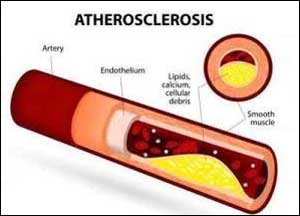- Home
- Editorial
- News
- Practice Guidelines
- Anesthesiology Guidelines
- Cancer Guidelines
- Cardiac Sciences Guidelines
- Critical Care Guidelines
- Dentistry Guidelines
- Dermatology Guidelines
- Diabetes and Endo Guidelines
- Diagnostics Guidelines
- ENT Guidelines
- Featured Practice Guidelines
- Gastroenterology Guidelines
- Geriatrics Guidelines
- Medicine Guidelines
- Nephrology Guidelines
- Neurosciences Guidelines
- Obs and Gynae Guidelines
- Ophthalmology Guidelines
- Orthopaedics Guidelines
- Paediatrics Guidelines
- Psychiatry Guidelines
- Pulmonology Guidelines
- Radiology Guidelines
- Surgery Guidelines
- Urology Guidelines
Bisphosphonate, Vitamin D Combo prevents Atherosclerosis in SLE

Combination therapy with bisphosphonate and vitamin D may prevent atherosclerosis in patients with systemic lupus erythematosus(SLE), according to a study published in the journal Arthritis Research and Therapy.
Ohmura K and his associates conducted a study to explore the correlation between the development of atherosclerosis and anti-osteoporotic treatment.
A total of 117 patients with SLE were included in the cross-sectional single-center study. Out of the 117 patients, 42 (36%) were receiving BP + VD, 27 (23%) BP alone, 30 (26%) VD alone and 7 (6%) other agents, including denosumab, estrogen, teriparatide, and calcium, to treat or prevent osteoporosis.
The study found that:
- The combination of bisphosphonate and Vitamin D has a potential to decelerate atherosclerosis in patients with SLE.
- A negative correlation was established between bone marrow density and intima-media thickness (IMT) in patients with SLE.
- Atherosclerosis in SLE could be affected not only by traditional risk factors but also by SLE-related risk factors, such as duration of disease, duration of glucocorticoid use, disease activity, antiphospholipid antibodies, and renal manifestations.
- Statins have been shown to prevent atherosclerosis in the general population by lowering low-density lipoprotein cholesterol levels and by multiple off-target effects such as anti-inflammation and proliferation.
Read Also: Anti-inflammatory drugs not yet for Atherosclerosis-ESC Consensus statement
According to the authors, bisphosphonates are expected to inhibit arterial plaque development and calcification through several mechanisms. Nitrogen-containing bisphosphonates and statins inhibit the mevalonate pathway through interaction with farnesyl pyrophosphate synthase to prevent post-translational modification of proteins, resulting in decreased levels of inflammatory cytokines and matrix metalloproteinases. Bisphosphonates also decrease a variety of mature vascular cells, which migrate into the vessel walls and damage vascular endothelial cells.
The study concluded that the combined treatment using bisphosphonates and vitamin D may be more effective compared with monotherapy of bisphosphonate or vitamin D alone in the prevention of atherosclerosis. Moreover, as most patients require adequate anti-osteoporotic treatment during long-term use of glucocorticoid, so combination BP + VD is commonly indicated in the treatment of SLE.
For reference log on to http://10.1186/s13075-018-1589-9

Disclaimer: This site is primarily intended for healthcare professionals. Any content/information on this website does not replace the advice of medical and/or health professionals and should not be construed as medical/diagnostic advice/endorsement or prescription. Use of this site is subject to our terms of use, privacy policy, advertisement policy. © 2020 Minerva Medical Treatment Pvt Ltd